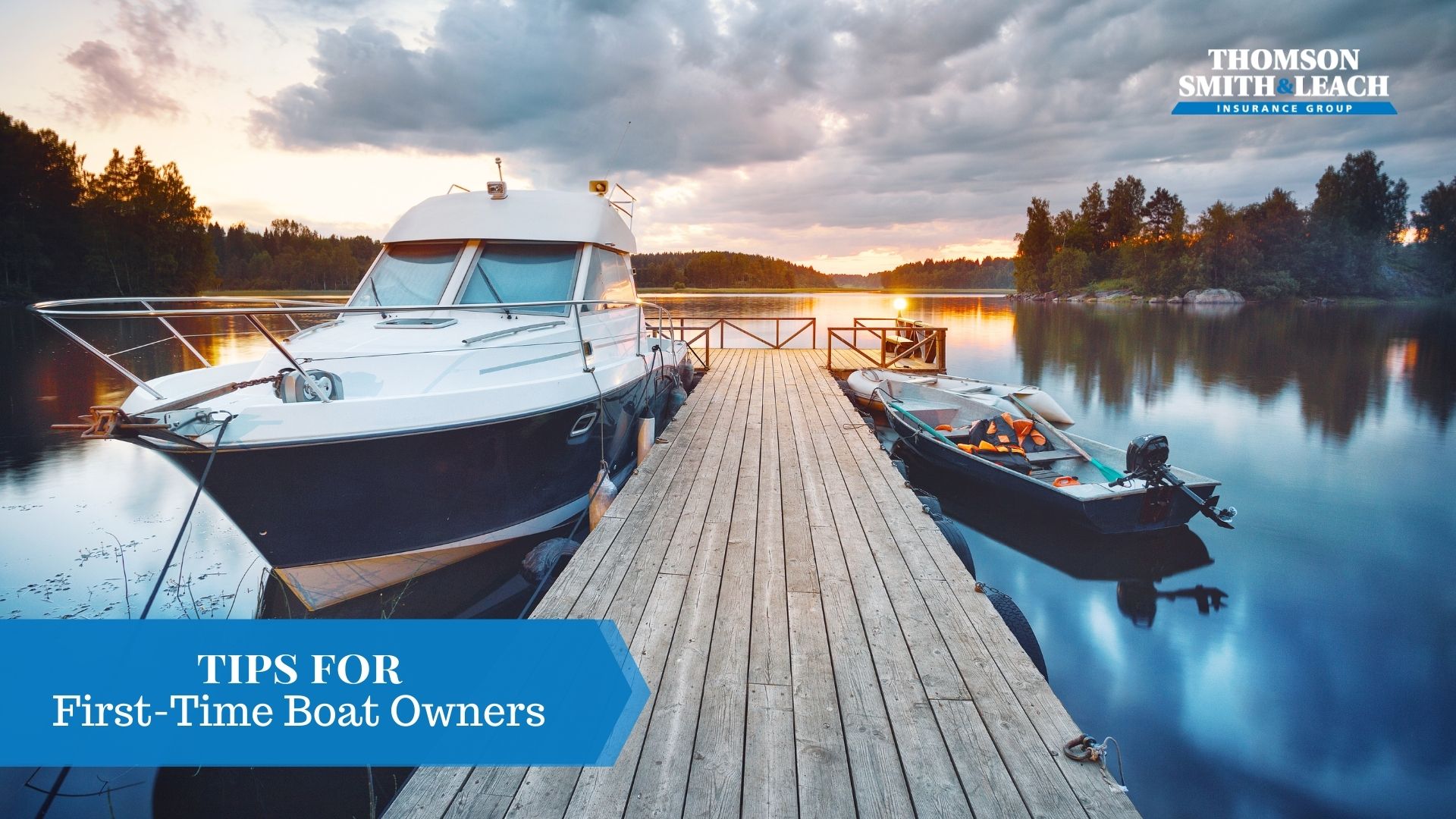Buying a boat is a huge investment but well worth it for some flat-out fun on the water. Whether you purchase a new or pre-owned boat, the reward to explore different waterways can be a very exciting experience.
For first-time boat owners, following an owner’s guideline checklist for insurance, storage, maintenance, and more will help to educate on what to expect and on proper safety.
First Time Boat Owner Checklist
- Purchase boat insurance.
- Decide where you will store the boat.
- Learn how to trailer your boat.
- Educate yourself on basic maintenance requirements.
- Learn how to launch and retrieve the boat.
- Always practice responsible and safe boating.
- Stock the boat with the proper equipment.
- Master the basic on-the-water operating skills.
- Follow a pre-departure checklist.
As a boat owner, you are required to have insurance to take it out on the water. Understanding the types of coverage specific to the various types of boats and gathering competitive quotes will help you to find the best policy that fits your needs.
Make sure to ask questions about damages to your vessel and how they will be paid. If you plan to boat outside the inlet, you will need an experienced marine insurer to help find the right insurance policy. With so much to learn, contacting a knowledgeable insurance agent like TSL can help to make the process less overwhelming.
Boat Insurance Types
Agreed value policy
This policy covers the boat based on its value when the policy was written. While this type of policy can cost more upfront, it does not depreciate for a total loss.
Actual cash value policy
This policy costs less upfront but will only pay the cash value of the boat at the time it is declared totaled or partial loss.
Boat coverage can also have add-ons such as towing and assistance, uninsured boater’s liability, personal effects, and medical payments. Most policies will cover permanently attached equipment as well as items like oars, anchors, trolling motors, tools life jackets, and seat cushions.
Boat Insurance Add-ons Options
- Specialized coverage for something specific on a boat such as an expensive prop or navigation equipment.
- Removing your boat due to damage whether minor or extreme.
- If you plan to leave the United States such as the Bahamas or Mexico, you can get temporary additional coverage.
- You can cover a loss that was the result of normal wear and tear and not an accident.
- If you have an accident while towing, your boat policy could pay to repair or replace the trailer as well as the boat.
If you have a boat located in a hurricane zone, your insurer might expect you to provide a hurricane plan. Will you tow the boat to a safe harbor or store it in a hurricane-proof facility? Your answer can affect your rates, even possibly lowering them. But be prepared to follow the hurricane plan because your coverage might hinge on it.
Read also: Preparing Your Boat for a Hurricane
When insuring your boat, it is the best practice to separate your boat insurance from your homeowner’s coverage. This is because most homeowner’s policies limit or don’t cover marine-specific risks such as salvage work, wreck removal, pollution, or environmental damage. But some homeowner’s policies include perfectly good coverage for smaller boats and motors.
Boat Insurance Factors
- The boat’s age
- The boat’s value
- Length of the boat
- The speed (horsepower)
- Type of the boat such as a utility, cruiser, bass boat, etc.
- Does the boat’s condition meet U.S. Coast Guide standards that were in effect at the time it was built?
- A homemade boat (boats without a serial number can be tricky but many boat kits are good)
- Residence of the boat
- Houseboats with no motor
- Where will it operate (lake, rivers, ocean, etc.)
Louisiana law enforcement patrols the waterways to make sure your boating experience is pleasant and safe. It would be wise to follow the rules set in place and cooperate with the law. Whether you like to fish on the bayou, sail the Gulf Coast, or travel the Mississippi River, it is highly important to familiarize yourself with the state’s rules and regulations.
Many Louisiana boaters are required to complete a boating safety education course to be eligible to operate a boat. Rules are put in place for a reason so obeying them would benefit your safety while on the water.
Boating Laws and Regulations
- It is illegal for anyone under the age of sixteen years to operate a PWC.
- It is illegal for a rental company to rent a personal watercraft to anyone under the age of sixteen.
- It is unlawful for the owner of a personal watercraft to knowingly permit someone under the age of sixteen to operate a PWC.
If you have questions concerning boating insurance, contact TSL Insurance Group today. We are in three locations to better serve a wider range of people.
To schedule an appointment with a trained team member in the Lafayette office call 337-262-0511, in Abbeville call 337-893-2883, or in Franklin call 337-828-0580. TSL insurance can help to make sure you are legally set up for venturing out on the waterways to enjoy a day with family and friends.
Contact TSL today and let us help you leave your worries ashore with great coverage and service.


Recent Comments